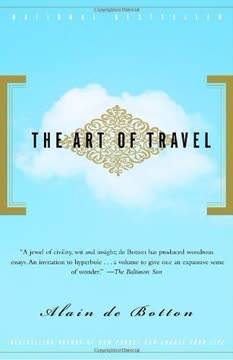가지 주요 요점
1. 소크라테스: 지적 독립의 구현
"만약 우리가 그러한 평정을 유지할 수 없다면, 우리의 성격이나 업적에 대해 몇 마디의 가혹한 말만으로도 눈물을 터뜨리기 쉽다면, 그것은 다른 사람들의 승인이 우리가 옳다고 믿는 능력의 필수적인 부분을 형성하기 때문일 수 있습니다."
상식을 의심하기. 소크라테스는 사회적 규범에 도전하고 깊이 뿌리박힌 신념을 의심하는 용기를 보여주었습니다. 그는 진정한 지혜가 우리의 무지를 인식하고 끊임없이 우리의 가정을 검토하는 데서 온다고 증명했습니다.
소크라테스의 방법. 이 접근법은 다음을 포함합니다:
- 상식으로 여겨지는 진술을 식별하기
- 그것이 거짓일 수 있다고 상상하고 예외를 찾기
- 예외를 고려하여 초기 진술을 수정하기
- 반증할 수 없는 진술에 도달할 때까지 과정을 반복하기
이 방법을 사용함으로써 우리는 복잡한 문제에 대한 더 정교하고 정확한 이해를 개발할 수 있으며, 지적 독립성과 비판적 사고 능력을 키울 수 있습니다.
2. 에피쿠로스: 단순함을 통한 행복의 재정의
"작은 것에 만족하지 않는 사람은 아무것에도 만족하지 못한다."
행복의 필수 요소. 에피쿠로스는 진정한 행복이 다음에서 비롯된다고 주장했습니다:
- 우정
- 자유
- 사색 (명상)
그는 이러한 요소들이 물질적 부나 사치보다 더 중요한 만족의 요소라고 믿었습니다.
소비 문화에 도전하기. 에피쿠로스의 철학은 우리에게 다음을 권장합니다:
- 자연적이고 필요한 욕구와 인공적이고 불필요한 욕구를 구별하기
- 끝없는 욕망을 쫓기보다는 기본적인 필요를 충족시키는 데 집중하기
- 단순한 기쁨과 의미 있는 관계에서 기쁨을 찾기
이 관점을 채택함으로써 우리는 물질주의와 관련된 불안과 불만에서 벗어나 더 평화롭고 충만한 삶을 살 수 있습니다.
3. 세네카: 스토아 철학의 지혜로 역경을 받아들이기
"우리는 충족의 요소들을 자발적으로 마스터할 수 없기 때문에 고통받는다."
불행에 대비하기. 세네카는 다음을 옹호했습니다:
- 부정적 시각화 연습 (역경의 사전 명상)
- 이성적 사고를 통한 감정적 회복력 개발
- 우리의 통제 밖에 있는 것을 받아들이기
고통을 지혜로 변환하기. 스토아 철학의 접근법은 다음을 포함합니다:
- 외부 사건은 중립적이며, 우리의 판단이 고통을 만든다는 인식
- 도전을 성장의 기회로 재구성하기 위해 이성을 사용하기
- 역경 속에서 용기, 정의, 자제와 같은 덕목을 키우기
이러한 실천을 채택함으로써 우리는 더 큰 감정적 안정성을 개발하고 삶의 가장 어려운 순간에서도 의미를 찾을 수 있습니다.
4. 몽테뉴: 불완전한 인간 조건을 축하하기
"우리의 고통 중 가장 거친 것은 우리의 존재를 경멸하는 것이다."
우리의 인간성을 받아들이기. 몽테뉴는 우리에게 다음을 권장했습니다:
- 우리의 신체 기능과 결점을 받아들이기
- 인간의 관습과 신념의 다양성을 인식하기
- 사회적 규범과 편견을 의심하기
자기 성찰의 가치. 몽테뉴의 에세이는 다음을 보여줍니다:
- 자기 성찰과 정직한 자기 반성의 중요성
- 개인 경험의 풍부함이 지혜의 원천임을 인식하기
- 자기 발견과 이해를 위한 도구로서 글쓰기의 힘
몽테뉴의 예를 따름으로써 우리는 더 큰 자기 수용과 인간 경험에 대한 더 정교한 이해를 개발할 수 있습니다.
5. 쇼펜하우어: 사랑의 생물학적 필연성 이해하기
"그것에 의해 결정되는 것은 다음 세대의 구성, 즉 미래의 인류의 존재와 특별한 구성이다."
생물학적 충동으로서의 사랑. 쇼펜하우어는 다음을 주장했습니다:
- 낭만적 매력은 무의식적인 번식 의지에 의해 주도된다
- 우리는 우리의 유전적 약점을 보완할 수 있는 파트너에게 끌린다
- 사랑의 강도는 종의 중요성에 비례한다
관계에 대한 함의. 이 관점은 다음을 시사합니다:
- 개인의 행복과 생물학적 필연성 간의 잠재적 갈등
- 장기적인 파트너십에서 현실적인 기대의 필요성
- 짝 선택에서 우리의 무의식적 동기를 이해하는 가치
비록 실망스러울 수 있지만, 쇼펜하우어의 이론은 우리가 더 큰 자기 인식과 연민으로 관계에 접근할 수 있도록 도와줍니다.
6. 니체: 개인적 성장을 위한 고통의 필요성
"기쁨과 불쾌가 서로 밀접하게 연결되어 있어서 가능한 한 많은 것을 원하는 사람은 또한 가능한 한 많은 것을 가져야 한다면?"
삶의 도전을 받아들이기. 니체는 다음을 옹호했습니다:
- 어려움을 성장과 자기 실현의 기회로 보기
- 안락함과 안주를 거부하기
- 역경을 통해 회복력과 강인함을 키우기
"아모르 파티" (운명 사랑)의 개념. 이것은 다음을 포함합니다:
- 고통을 포함한 삶의 모든 측면을 받아들이기
- 장애물을 극복하는 데서 의미와 목적을 찾기
- 고통을 개인적 성장과 창의성으로 변환하기
니체의 관점을 채택함으로써 우리는 더 큰 회복력을 개발하고 삶의 불가피한 도전 속에서 충만함을 찾을 수 있습니다.
7. 철학의 위안: 삶의 도전에 대한 지혜
"내가 관심을 갖는 인간들에게 나는 고통, 황폐, 질병, 학대, 모욕을 원한다. 그들이 깊은 자기 경멸, 자기 불신의 고문, 패배자의 비참함을 낯설지 않게 하기를 바란다."
실용적 지혜로서의 철학. 논의된 철학자들은 다음을 제공합니다:
- 삶의 어려움을 극복하기 위한 도구
- 전통적 사고에 도전하는 관점
- 개인적 성장과 자기 실현을 위한 영감
철학적 통찰 적용하기. 우리는 다음을 통해 이점을 얻을 수 있습니다:
- 사회적 규범과 우리의 가정을 의심하기 (소크라테스)
- 우리의 삶을 단순화하고 필수적인 관계에 집중하기 (에피쿠로스)
- 이성을 통해 감정적 회복력을 개발하기 (세네카)
- 우리의 불완전한 인간성을 받아들이기 (몽테뉴)
- 사랑의 생물학적 기초 이해하기 (쇼펜하우어)
- 삶의 도전에서 의미 찾기 (니체)
이 철학적 아이디어와 교류함으로써 우리는 삶의 도전에 대한 더 정교한 이해를 개발하고 일상 생활에서 더 큰 평화, 지혜, 충만함을 찾을 수 있습니다.
마지막 업데이트 날짜:
FAQ
What's "The Consolations of Philosophy" about?
- Philosophical Guidance: "The Consolations of Philosophy" by Alain de Botton explores how philosophy can provide comfort and guidance in dealing with life's challenges.
- Six Philosophers: The book examines the ideas of six philosophers: Socrates, Epicurus, Seneca, Montaigne, Schopenhauer, and Nietzsche, each offering insights into different aspects of human suffering.
- Practical Application: De Botton illustrates how these philosophical ideas can be applied to modern life, addressing issues like unpopularity, financial struggles, frustration, inadequacy, heartbreak, and difficulties.
- Philosophy as Therapy: The book positions philosophy as a form of therapy, offering practical advice and wisdom to help readers navigate personal and existential challenges.
Why should I read "The Consolations of Philosophy"?
- Accessible Philosophy: Alain de Botton makes complex philosophical ideas accessible and relevant to everyday life, making it a great introduction to philosophy.
- Practical Insights: The book provides practical insights and advice on dealing with common human problems, making it useful for personal growth and self-reflection.
- Engaging Writing: De Botton's engaging writing style combines humor, anecdotes, and historical context, making the book both informative and entertaining.
- Timeless Wisdom: By exploring the thoughts of renowned philosophers, the book offers timeless wisdom that can help readers find comfort and meaning in their lives.
What are the key takeaways of "The Consolations of Philosophy"?
- Socrates on Unpopularity: Socrates teaches the importance of staying true to one's beliefs despite societal disapproval, emphasizing the value of independent thinking.
- Epicurus on Money: Epicurus suggests that true happiness comes from simple pleasures, friendship, and freedom, rather than wealth and luxury.
- Seneca on Frustration: Seneca advises accepting the inevitability of frustration and using reason to manage emotions and expectations.
- Montaigne on Inadequacy: Montaigne encourages embracing human imperfection and finding contentment in the ordinary aspects of life.
How does Alain de Botton use Socrates' philosophy in the book?
- Consolation for Unpopularity: Socrates' philosophy is used to address the fear of unpopularity, teaching the importance of standing by one's convictions.
- Independent Thinking: Socrates exemplifies the value of questioning societal norms and thinking independently, even in the face of opposition.
- Rational Confidence: The book highlights Socrates' rational confidence in his beliefs, encouraging readers to develop their own reasoned convictions.
- Intelligent Skepticism: Socrates' life and death serve as an invitation to practice intelligent skepticism and seek wisdom through philosophy.
What does Epicurus teach about money in "The Consolations of Philosophy"?
- Simple Pleasures: Epicurus teaches that happiness is derived from simple pleasures, such as friendship, freedom, and thought, rather than material wealth.
- Natural Desires: He distinguishes between natural and necessary desires and those that are neither, suggesting that fulfilling basic needs is sufficient for happiness.
- Critique of Luxury: Epicurus critiques the pursuit of luxury, arguing that it does not lead to greater happiness and can distract from more meaningful pursuits.
- Advertising and Desires: The book discusses how modern advertising skews our perception of needs, promoting unnecessary desires that Epicurus would advise against.
How does Seneca's philosophy address frustration?
- Acceptance of Reality: Seneca advises accepting the inevitability of frustration and understanding that it stems from unrealistic expectations.
- Preparation for Adversity: He emphasizes the importance of preparing for adversity and recognizing that suffering is a part of life.
- Rational Management: Seneca encourages using reason to manage emotions and adjust expectations, reducing the impact of frustration.
- Philosophy as a Tool: The book presents Seneca's philosophy as a tool for enduring life's challenges with dignity and equanimity.
What insights does Montaigne offer on inadequacy?
- Embrace Imperfection: Montaigne encourages embracing human imperfection and accepting the limitations of reason and intellect.
- Ordinary Life: He finds value in the ordinary aspects of life, suggesting that wisdom lies in accepting and understanding our everyday experiences.
- Critique of Reason: Montaigne critiques the overemphasis on reason, highlighting the importance of acknowledging our emotional and physical selves.
- Self-Acceptance: The book uses Montaigne's philosophy to promote self-acceptance and the idea that we are adequate in our own unique ways.
How does Schopenhauer's philosophy provide consolation for heartbreak?
- Inevitability of Suffering: Schopenhauer acknowledges the inevitability of suffering in love, viewing it as a natural part of the human condition.
- Will-to-Life: He introduces the concept of the will-to-life, which drives our desires and often leads to romantic suffering.
- Understanding Rejection: Schopenhauer's philosophy helps readers understand rejection as a biological imperative rather than a personal failure.
- Acceptance of Pain: The book encourages accepting the pain of heartbreak as a necessary experience, offering a philosophical perspective on love's challenges.
What role does Nietzsche's philosophy play in "The Consolations of Philosophy"?
- Embrace of Difficulty: Nietzsche's philosophy emphasizes the importance of embracing difficulties as a path to personal growth and fulfillment.
- Critique of Comfort: He critiques the pursuit of comfort and ease, advocating for a life of challenge and striving for greatness.
- Creative Suffering: Nietzsche views suffering as a catalyst for creativity and self-discovery, encouraging readers to find meaning in adversity.
- Philosophical Courage: The book uses Nietzsche's ideas to inspire philosophical courage and the pursuit of a life rich in experiences and challenges.
What are the best quotes from "The Consolations of Philosophy" and what do they mean?
- "We will cease to be so angry once we cease to be so hopeful." This quote from Seneca highlights the connection between expectations and frustration, suggesting that adjusting our hopes can reduce anger.
- "Nothing satisfies the man who is not satisfied with a little." Epicurus emphasizes the sufficiency of simple pleasures and the futility of excessive desires.
- "Upon the highest throne in the world, we are seated, still, upon our arses." Montaigne humorously reminds us of our shared humanity and the importance of humility.
- "The secret for harvesting from existence the greatest fruitfulness and the greatest enjoyment is – to live dangerously!" Nietzsche encourages embracing risk and challenge as a means to achieve fulfillment.
How does Alain de Botton make philosophy accessible in "The Consolations of Philosophy"?
- Engaging Writing Style: De Botton uses an engaging writing style, combining humor, anecdotes, and historical context to make philosophical ideas relatable.
- Practical Examples: The book provides practical examples of how philosophical concepts can be applied to everyday life, making them relevant to modern readers.
- Clear Explanations: Complex philosophical ideas are explained clearly and concisely, making them accessible to those new to philosophy.
- Human Stories: De Botton uses human stories and experiences to illustrate philosophical concepts, helping readers connect with the material on a personal level.
What is the structure of "The Consolations of Philosophy"?
- Six Chapters: The book is divided into six chapters, each focusing on a different philosopher and a specific human challenge.
- Philosopher Profiles: Each chapter provides a profile of the philosopher, their key ideas, and how these ideas can be applied to modern life.
- Thematic Approach: The book takes a thematic approach, addressing issues like unpopularity, money, frustration, inadequacy, heartbreak, and difficulties.
- Philosophical Lessons: Each chapter concludes with philosophical lessons and practical advice, offering readers tools for personal growth and self-reflection.
리뷰
철학의 위안은 다양한 평가를 받는다. 많은 이들이 철학에 대한 접근성을 높이고 실용적인 삶의 조언을 제공하는 점을 칭찬한다. 독자들은 복잡한 아이디어를 이해하기 쉽게 만드는 드 보통의 능력을 높이 평가하며, 유명 철학자들의 지혜에서 위안을 찾는다. 일부는 책이 철학적 개념을 지나치게 단순화하거나 자기계발서에 치우쳐 있다고 비판한다. 전반적으로 대부분의 독자들은 일상 생활에서 철학의 중요성을 소개하는 흥미로운 책으로 여기지만, 일부는 주제에 대한 더 깊이 있고 엄격한 접근을 원한다.


















